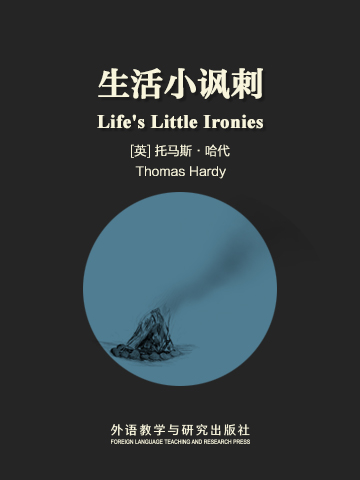The proverbial phrase 'life's little ironies' was coined by Hardy for his third volume of short stories. These tales and sketches possess all the power of his novels: the wealth of description, the realistic portrayal of the quaint lore of Wessex, the 'Chaucerian' humour and characterisation, the shrewd and critical psychology, the poignant estimate of human nature and the brooding sense of wonder at the essential mystery of life. The tales which make up Life's Little Ironies tenderly re-create a rapidly vanishing rural world and scrutinise the repressions of fin-de-siecle bourgeois life. They share the many concerns of Hardy's last great novels, such as the failure of modern marriage and the insidious effects of social ambition on the family and community life. Ranging widely in length and complexity, they are unified by Hardy's quintessential irony, which embraces both the farcical and the tragic aspects of human existence.
哈代,OM(1840年6月-1928年1月11日)是英国小说家和诗人。虽然他的作品通常属于自然运动,几首诗显示前浪漫主义和启蒙时期的文学,如他对超自然的迷恋元素。
The proverbial phrase 'life's little ironies' was coined by Hardy for his third volume of short stories. These tales and sketches possess all the power of his novels: the wealth of description, the realistic portrayal of the quaint lore of Wessex, the 'Chaucerian' humour and characterisation, the shrewd and critical psychology, the poignant estimate of human nature and the brooding sense of wonder at the essential mystery of life. The tales which make up Life's Little Ironies tenderly re-create a rapidly vanishing rural world and scrutinise the repressions of fin-de-siecle bourgeois life. They share the many concerns of Hardy's last great novels, such as the failure of modern marriage and the insidious effects of social ambition on the family and community life. Ranging widely in length and complexity, they are unified by Hardy's quintessential irony, which embraces both the farcical and the tragic aspects of human existence.
- THE SON’S VETO
- FOR CONSCIENCE’ SAKE
- A TRAGEDY OF TWO AMBITIONS
- ON THE WESTERN CIRCUIT
- TO PLEASE HIS WIFE
- THE MELANCHOLY HUSSAR OF THE GERMAN LEGION
- THE FIDDLER OF THE REELS
- A TRADITION OF EIGHTEEN HUNDRED AND FOUR
- A FEW CRUSTED CHARACTERS
- 书评 写书评
- 笔记
-
书评加载中...























 京公网安备 11010802032529号
京公网安备 11010802032529号
笔记加载中...